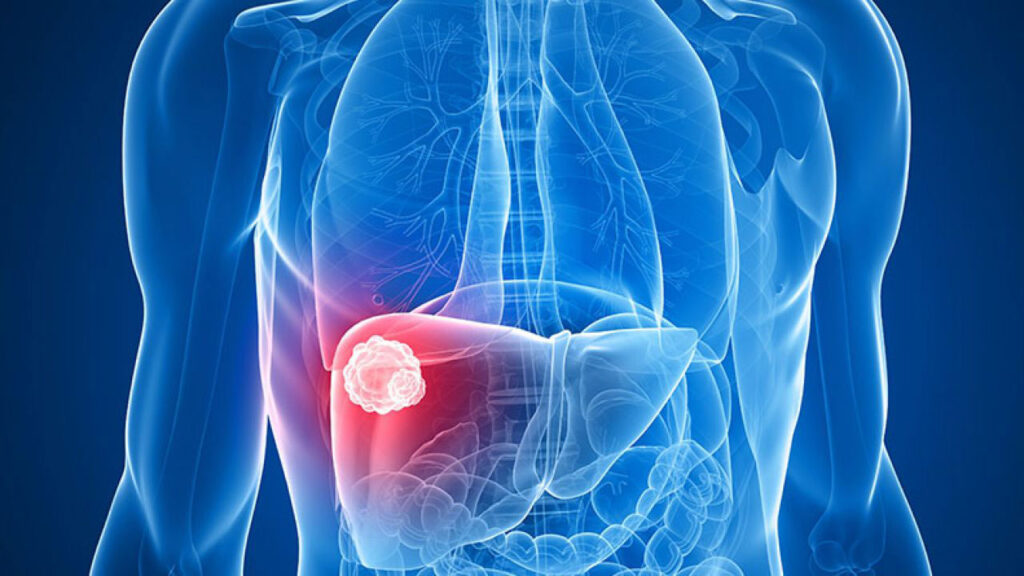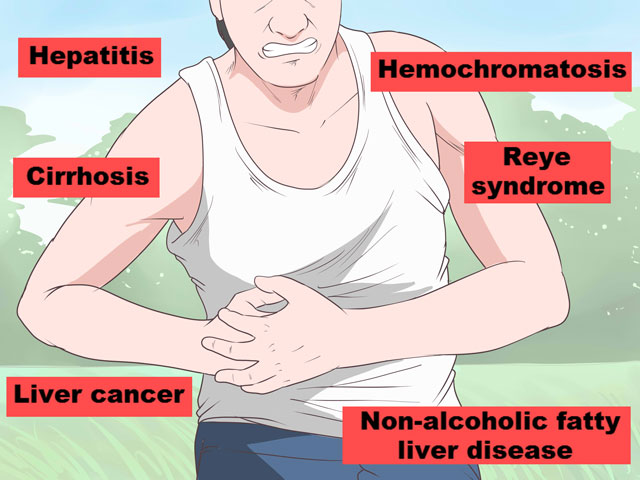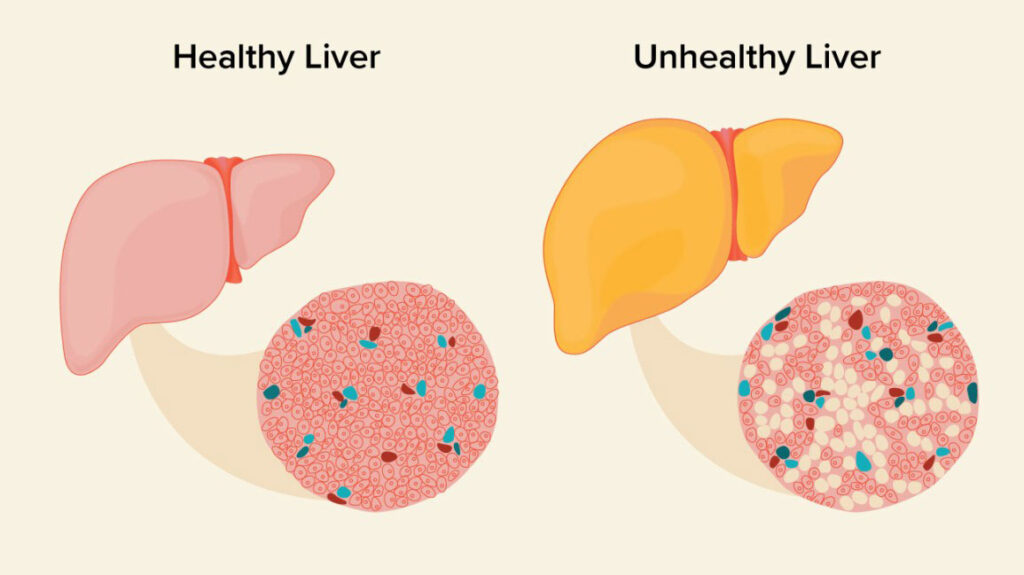WHAT IS LIVER PAIN?
Liver pain could take various forms. Most people feel it as a dull, throbbing feeling in the upper right abdomen. Liver pain could also feel like a stabbing sensation that takes your breath away. Sometimes this pain is accompanied by inflammation, and occasionally people feel radiating liver pain in their back or in their right shoulder blade. The liver converts food nutrients into products that we require for our bodies to function properly. The liver also acts as a detoxifying organ. When you feel the pain that comes from your liver, it is a signal that there is something happening in your body that requires to be addressed.

LIVER PAIN SYMPTOMS
When your liver has some sort of problem, there are symptoms that tend to accompany the pain.
The liver’s job is to detoxify and help flush out waste and convert food to nutritional products your body requirements. If your liver is being damaged by any kind of disease, those processes are not being done efficiently.
This means that your body is going to respond by showing signs of toxicity.
Associated symptoms of liver pain might include:
- Fatigue
- Jaundice of the skin or whiteness of the eyes
- Dark brownish urine
- Inflammation in the ankles or legs
- Itchy skin
- Loss of appetite
LIVER PAIN CAUSES
Possible causes and related conditions include:
- Excessive alcohol consumption
- Hepatitis
- Non-alcoholic fatty liver disease
- Cirrhosis
- Reye’s syndrome
- Hemochromatosis
- Liver cancer

Liver disease is not a rare condition. As stated by the Centers for Disease Control and Prevention (CDC), an estimated 3.9 million U.S. adults are diagnosed with liver disease. Hepatitis, non-alcoholic fatty liver disease (NAFLD), and excessive alcohol consumption are the most frequent causes of liver problems. Liver pain could also indicate cirrhosis, Reye’s syndrome, liver cancer, and hemochromatosis.
Sometimes pain felt in the same general region of the liver is actually caused by issues in the gallbladder, the pancreas, or the kidneys. We are still learning more about diseases of the liver, including what triggers them and how to best treat them. But if your pain continues without a diagnosis, you cannot benefit from any of the new research or treatment methods that are available to you.
It is important to work with a doctor or primary care physician to figure out why your liver is hurting.
LIVER PAIN DIAGNOSIS
When you visit your doctor or primary care physician about your liver pain, they will do a visual inspection of your abdomen. Your doctor or primary care physician will check for swelling in the liver region and ask you several questions about your lifestyle and the nature of your pain. You will probably require a blood test to check if your liver is functioning properly. Ultrasonography, magnetic resonance imaging (MRI), or a computed tomography (CT) scan might be performed to check for tumors or cysts on your liver.
You might also have a test known as a stereotactic liver biopsy, during which a doctor or primary care physician uses a long, thin syringe to remove a small piece of tissue from your liver by the use of radiographic imaging guidance. Transient elastography is a special type of ultrasound testing that checks the stiffness of your liver for scarring or fibrosis. Your doctor or primary care physician might refer you to a specialist, either a gastroenterologist or hepatologist, for further assessment.

LIVER PAIN TREATMENT
Remedies
If you undergo liver pain in the morning after a heavy meal or a night of drinking alcohol, drink plenty of water. Try to circumvent fatty or heavy foods for a few days, and sit up straight to take pressure off the liver. If the pain continues for more than several hours, you should set up an appointment with your doctor or primary care physician. If you are experiencing nausea, dizziness, or hallucinations in conjunction with liver pain, you might require emergency care.
Diet and Lifestyle Changes
The treatment for your liver pain will depend on what is causing it. Treating your liver disease will probably begin with addressing what you eat and drink. The liver is one of the few organs in the body that could repair and regenerate itself. Research on the livers of mice has shown that a diet too low in protein results in a significant decline in liver volume, but after a sufficient amount of protein is added back to the diet, some reversal of liver damage is a possibility.
Other lifestyle alterations, like losing weight and reducing your cholesterol, are other first lines of defense when it comes to treating the cause of liver pain. Non-alcoholic fatty liver disease is managed almost exclusively by changing your diet and exercise routine.

Medications
If you experience liver pain, you might be tempted to reach for an over-the-counter (OTC) painkiller like acetaminophen. Although, you should not take this type. The liver’s work is filtering off toxins, and taking acetaminophen will only tax the system more, as acetaminophen could affect or damage the liver. If the problem with your liver is severe, taking the painkillers you have at home can start a worse reaction.
Once your liver condition has been diagnosed or discovered, you will likely be prescribed drugs to manage your condition and lower your pain. Hepatitis B antiviral drugs exist for treating chronic disease, like lamivudine (Epivir) and adefovir (Hepsera). In recent years, researchers have found that several courses of an antiviral known as Harvoni (ledipasvir/sofosbuvir) could make the hepatitis C virus undetectable in the bloodstream.
Managing Liver Cancer
If your liver pain is caused by liver cancer, your doctor or primary care physician will instruct you how best to prevent the spread of your cancer. You will most probably require a referral to an oncologist and speedy treatment, as depending upon the type, cancer in the liver can be aggressive and grow rapidly.
Sometimes, the damage to the liver caused by hepatitis, acetaminophen, or other toxin exposure, cancer, or alcohol will be impossible to reverse. In those cases, your doctor or primary care physician might recommend a liver transplant as your best treatment option.
OUTLOOK
By getting proper medical care, changing your diet and lifestyle, and making sure that you look after your body, most liver diseases could be effectively managed if not cured completely. Liver pain usually signals a serious problem in your body. It is not something to be ignored or waited out. Speak to your doctor or primary care physician about your liver pain to determine the appropriate course of action.
If you or anyone you know is suffering from liver pain, our expert providers at Specialty Care Clinics will take care of your health and help you recover.
Call (469) 545-9983 to book a telehealth appointment for an at-home check-up.
